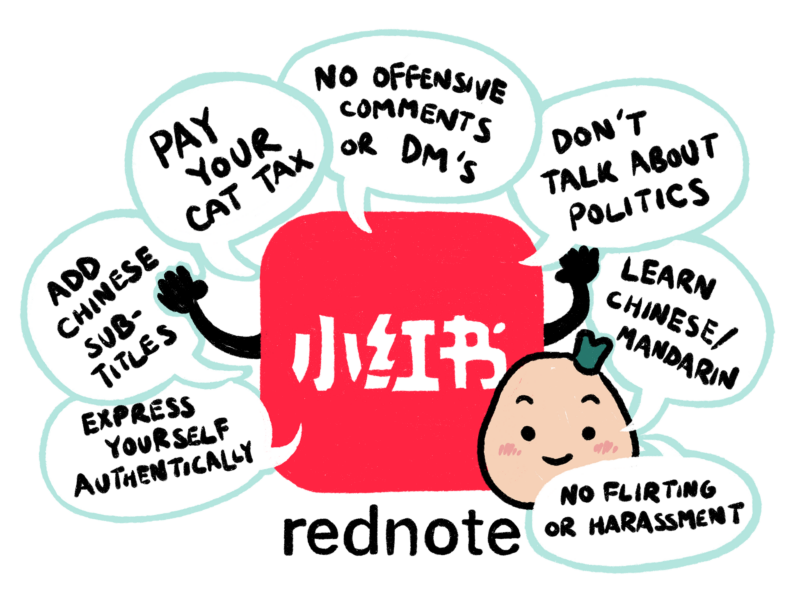It’s not that VIA Rail is good. That would mean high speed, high reliability, high frequency, and low cost. VIA Rail is slower, less reliable, less frequent, and more expensive than, literally, the bus.
It also cost the Canadian taxpayer $773 million in 2023 to carry 4.1 million passengers (their most recent annual report). That’s a drop in the bucket, or perhaps a drop in the budget, compared to the billions the federal government wastes every year, but suffice to say it doesn’t compare well to Amtrak. You don’t want to lose efficiency contests to Amtrak. In a serious country, VIA Rail could easily do more with less, pleasing the many Canadians who want to go by train and hurting nobody except us foamers.
However, when an American visits Canada and rides VIA Rail, he is pleased, even when the train is eight hours late. Easy for him to say, he doesn’t pay our taxes, but Canadians don’t feel the same way on Amtrak. VIA Rail, the $773 million remittance man of the federal government, too unrewarding to nurture and too popular to eliminate, has got character. It places elegant slow travel within reach of the middle class. And since we do not live in a serious country, for most of us the choice is not between “current bad VIA” and “hypothetical efficient VIA,” but between “current bad VIA” and no service at all.
VIA is not good, but it is nice. Recently I got to cross Canada by train, starting with the Canadian from Vancouver to Toronto. It was very late most of the time and I sampled many VIA inconveniences. It was still very nice, and not as a “subsidized cruise ship on land” which would be, let’s face it, a waste. In fact, one of the most worthwhile VIA complaints is how hard it is to see whether the niceness is what’s costing all the money.
VIA trains 1 and 2, the Canadian, are VIA’s “flagship” trains. They are not its most popular, certainly not its most frequent, and do not set standards in speed or reliability. They are, however, its longest, most luxurious, and by far its most famous. The Canadian was featured on the reverse of the previous $10 bill, of course in the Rocky Mountains, symbolizing, according to the Bank of Canada, “the engineering feat of linking Canada by rail.” Only a symbol, as the Canadian does not take the original Canada-linking Canadian Pacific route. It is also, literally, a slower trip than in the steam days: there is so much freight traffic on the line that the Canadian is routinely delayed in sidings for hours at a time watching cargo roll to the ports. Canadian National only begrudgingly lets VIA Rail operate on its tracks at all, in exchange for millions of dollars a year and a certain amount of government goodwill, but prioritizes their freight.
Freight trains are very important, and a passenger corridor from the Pacific to Toronto in today’s climate is literally impossible, even with many more than the Canadian‘s current 60,000-odd passengers a year. What we have now, though, is not good enough. In the United States Amtrak is, by law, given priority over freight traffic. Something similar is proposed every few years as private members bills by the NDP and the Greens and go to the great Green/NDP private member bills home in the sky. The “VIA HFR” plan, to resurrect abandoned lines between Toronto and Montreal, would fix one corridor if it showed any signs of ever happening, which it doesn’t, and if it wasn’t a back-door way to peel off the bulk of VIA Rail’s resources into a public-private partnership that would leave 90% of the country with nothing, which it is.
A government that took rail seriously could cut a day off a transcontinental train cheaply: pass a law giving VIA Rail priority over freight. CN would be unhappy, but CN is a private company which got Canada’s public rail assets for a song in the Mulroney years and annihilated many of them, so CN can lump it. More productively, that obligation could come with the government financing sidings and extra tracks through bottlenecks, and buying outright underused bits of track that CN finds economically dubious and would probably be happily rid of at a fair price. The government sometimes pays for track work for VIA’s sake, but CN owns the tracks, the government never requires CN to actually prioritize VIA on them, so new construction gets clogged up with freight same as the old and only CN shareholders are happy. Government subsidizing business without even getting what we pay for is is the worst of both worlds.
Though, as I saw before my train left, there’s no solving every problem.
The Canadian
Day 1
Pacific Central Station, Vancouver, BC
underway 4.5 hours late
What is VIA’s fault is their “airlineification.” Much of the tedium of getting on an airplane without the justification.
I arrived at Pacific Central Station, Vancouver relatively early. VIA asks long-distance passengers to arrive an hour early, and departure day was a work day: my thought was to make the trip over on my lunch break, sit in the business lounge (sorry the Salon Panorama Lounge), work on my laptop, and be both responsible and timely.
But the business Salon Panorama Lounge was not open yet. There is a lot of boring queuing to do, getting checked in (why?) and, for sleeping car passengers, booking a dinner reservation (why then? why not online or on the train?), and those pointless lines weren’t open yet either. All I could do was sit on the stately tall wooden benches and work as best I could. Those benches were invented after homeless people but before laptop computers: they are more comfortable than they look but still hostile for laying or even working in and with no power anywhere. The reason nothing was open is that two trains a week depart from Vancouver so most of the work is done by the trainboard staff.
It’s aggravating. The lining up is unnecessary, and long, with the priority plutocrats in Prestige Class going first. Finishing queuing doesn’t nearly mean boarding, of course, so off into the Salon Panorama Lounge. VIA’s business lounges are reliably mid and Vancouver’s is more mid than most: no snacks to speak of and only coffee, tea, water, and soft drinks available, but as a bonus there is a phone booth’s worth of seating inside. Most wait on the patio, and when I say “patio” I mean a fenced-off part of the train platform, where foamers can ogle the Park cars then find the free seat nearest a heater. During the high season the lounge must be a stockyard of Baby Boomers, mashed together in their livestock pen waiting to enjoy the trip they paid thousands of dollars for.
Unless you’re hankering for A&W it’s still the best place to wait, but woof. Being antsy to board a train one will spend the next four nights on seems mad, but people are mad and I am people.
When I boarded my sleeper car (Brock Manor, #8310, and what’s more 1950s than a sleeping car named after Sir Isaac Brock rather than Viola Desmond or Henry Morgentaler), there was the usual VIA swarm to help me and my baggage up if necessary and point me to my berth. The person sitting across from me was unfortunately fragrant, but the berth seats are only averagely comfortable anyway so I was just waiting for them to scan my ticket before I bounced to one of the two common lounges on the train: the Skyline car and the Park car. Both are dome cars, the Skyline being rather more homey, 1950s chic, festooned with four-legged chairs and chess boards on the tables. The Park car, or at least the renovated Prestige Class Park car used on The Canadian, is a lovely mahogany-paneled bar car that, in the summer, is restricted to Prestige Class passengers during the day but which in the winter welcomes grubby sleeper-folk any time to sell them $10 train beers. I’d grab a Bridge Blood Orange, sit in the back and look out the ultimate foamer window as we pulled out of Pacific Central, all would be well.
The best-laid plans of VIA Rail travelers inevitably go agley. Over on Boundary Road, a dump truck had smashed into a power pole and brought it down over the line out of Pacific Central. Power lines across the tracks is not the type of electrified railroading people have in mind, and trains were stuck while BC Hydro took their time tidying it up. It is an aspect of Canadian life which happens so long as the government imports the sorts of truck drivers who do these things. How could VIA Rail possibly avoid that problem? Spend tens of billions building an elevated heavy rail line right next to the Skytrain’s Millennium Line? Somehow build underpasses for every road?
So we did all we could do, which was wait. If we happened to be in sleeping cars, we also had a glass of Canadian sparkling wine to welcome us aboard. When people say the Canadian is a cruise-ship-like experience, that wine is what they have in mind. Felt pretty good, though.
There was also time for absurdity. The Railway Association of Canada requires that on “other-than-commuter” services a passenger in each car be taught how to open the train doors in an emergency. In this car, that someone was me, chosen on the scientific basis that I was going to Toronto so they’d only have to tell one person for the whole trip. The doors on those 70-year-old coaches are not user-friendly and the process is a multi-step one that involves bracing oneself against the train while pulling the floor up. In an emergency I’m sure I would have muddled through, for the attendant concluded that five-minute demo by reminding me very clearly that I was supposed to open that door when called to, not because I felt like going outside, a warning that must have come from experience.
Thus amused I went to the Park car to gently pickle myself. It’s a very nice place. Good drink, good conversation, good views of the train station I’d already spent two hours in. Train travelers are as a rule pleasant folk; every long-distance train has its bore but one learns to recognize and avoid him. It passed the time before a grand old dining car dinner, also sitting in the station. Meals are made fresh to order and are reliably superb. It would be curious to know how much VIA spends feeding each sleeper passenger (the dining car is sure thoroughly-staffed), but with a limited menu, alcohol at a healthy markup, and the high fares for sleepers, it ought to be possible to do economically.
We got away only about four and a half hours late and passengers were all in fine spirits. Nobody boarded that train expecting everything to run smoothly, and while losing that much time before starting was unexpected, it was all part of the fun. I stayed awake a bit past Mission Harbour station, where we always pick up more passengers than I’d think.
The ride up the Fraser Valley, through the agricultural districts, pleasant old homes, and gradually building mountains, are a scenic highlight most of the time. By now it was well dark, but this meant more daylight in the mountains.
The Canadian
Day 2
“North Kamloops” station, Kamloops, BC
6.5 hours late
I enjoy trains too much to sleep well on them. Traveling up the Thompson River beneath a beautiful full moon, I too often sat up in my berth, put my glasses on, and just looked out the window for a while. When I slept I slept well, which is why you get a sleeper, so my fatigue was entirely self-sabotage.
There are three classes of service on the Canadian. Economy is exactly what you think. Unassigned seats rather than beds. You buy your meals à la carte from the cafe car and sleep in a chair. For one night or less, this is an exceptional way to travel. The economy class seats are not merely the most comfortable on the train but the most comfortable on any mode of transportation I have taken. The pitch is enormous, the legroom is beyond generous, there are footrests and plenty of room for baggage, and between, say, Vancouver and Jasper, it is an astonishingly cozy way to travel. You even get access to a dome car: a private economy class dome car, since that’s where the cafe is. Alas, the microwaved cafe car food is execrable and the line for coffee in the morning is long and slow. Once every blue moon or so the attendant will offer to sell you a styrofoam tray of dining car food, but that seems to depend on the whim of the staff and it shows up when it shows up. However, it is better-than-Air-Canada-business-class comfort for an economy class price and is recommended to those of us made of meat rather than money.
Next is “Sleeper Plus” class. The level of service improves: a bed of some sort, a bit more attention, and unlimited coffee and tea as well as the sublime dining car meals (though you pay for alcohol). I took a berth, which is essentially a pair of seats that face each other in the day and a pair of bunks, one over the other, by night. I paid extra for a lower berth, basically because I wanted a window at night, and found it very comfortable; the lower berth also benefits from no ladder (obviously) and handier bag storage atop turned-down headrests (less obviously). There are no power outlets in the berths and the tall should be careful: I am 6’0″ and if I was 6’2″ I might have felt scrunched up. Bunk beds conjure up images of hostels but tall, thick curtains mean privacy and the bunks are so solidly-built that the one night I had someone sleeping above me I got out for the sake of this post to make sure he was actually there. I have slept in many hostels and there is absolutely no comparison.
The cost for a bedroom is more than double but you get even more privacy and a power outlet. You share the same shower and bathrooms as everyone else, and in the bedroom for two you and your lady love still sleep in bunks, so decide for yourself if it’s worth it.
Finally, there is Prestige Class. There is something vaguely loathsome about a government transit service advertising Prestige Class, isn’t there? Prestige Class tourers get personal service, an actual double bed in a suite as nice as a decent hotel room with personal toilet and shower, drinks on the house, a television in case you want to watch Netflix rather than your colossally expensive train tourney, priority check-in for what that’s worth and, in the summer, priority access to the best communal space on any train, the Park car. This is the short paragraph, partially because I have never traveled Prestige Class and to all appearances never will, and partially because, though my favourite way to travel is luxury on the way and the cheapest hostel/campsite possible at my destination, I cannot for the life of me see what the money gets you. People do take it, though. I have met them.
The fares? As of this writing, an economy-class Vancouver-Toronto ticket starts at $514. An upper berth will be yours for $1,587, and a bedroom for one a mere $3,399. But if you want to go Prestige Class be prepared to fork out $13,930 of your hard-won Canadian dollars, exclusive of tax. This seems very expensive, because it is. However, in the offseason VIA regularly runs very steep discounts, and all year there are ways to save 10% here and there if you’re a CAA or a Hostelling International member or the like. I didn’t pay no $1,600 for my berth let me promise you: with a Black Friday sale and an off-peak itinerary I got out the door for $938 including my $157 berth selection (!!!) and tax. Still more than a business-class flight with similar smart shopping, but not much more. On the other hand, if you’re going in the summer not only should you not expect bargains but you had better book well in advance before demand drives prices up even higher.
There are some experiences which are tawdry however much you pay, and one of them is the first smoke break of the trip at North Kamloops station, not really in Kamloops, BC. You can see Kamloops glimmering in the distance but the station itself is smack dab in the middle of CN’s North Kamloops rail yard, with cars driving on the platform, strict rules on where you may and may not stand, and a plethora of interesting rolling stock that you can’t see from anywhere accessible. There is a shabby station building, and though the train usually arrives at a grim time of night some loyal souls always board here. Nestled in the Okanagan, it manages to be as picturesque as a rail yard is likely ever to be.
We were six and a half hours late by this point, having lost time in the night for freights and to change locomotive crews when their shifts ended. But what of it? Some parts of your trip must be in the day, and some parts must be at night, and all are beautiful, and as the sun got up we got to watch the magnificent plains, peaks, and burned-out forests of the British Columbia interior rise with it. At first my fellow passengers were eager to see Jasper and Kevin, attending in the Park car, refused to be drawn into guessing when we’d arrive. But the antsiness died down as the grandeur of the North Thompson River scenery began to make itself felt. It doesn’t get the hero photos, it doesn’t get put on the $10, but it is a spectacular region of ranches, river, foothills, those sketchy rural dwellings that remind you British Columbia was once a place for pioneers, weirdos, and ordinary people as well as multi-millionaires and their servants.
It wasn’t the passengers’ fault that all they knew was Jasper, for most weren’t from around here. There were a plethora of Americans and a solid contingent of Australians; Canadians on the Canadian were a minority. There was a trivia contest in the Skyline car after brunch, and the teams were advised to grab a Canadian each because it was emphatically elementary school Canadian history, “what year did Canada gain independence” with no tricks about the Statute of Westminster. The climax was a higher-or-lower team battle to find the exact height of Mount Robson, one of those pieces of trivia that has never managed to stick in my brain, so it wound up a pretty fair fight. Later, in the Park car, the woman who hit the height exactly quoted it with a smile and said “I will never forget that.”
Lateness gradually accumulated. Brunch was excellent (banana-pecan pancakes, yum) and there were no incidents, just freight trains; that tell-tale slowing and thunking as the train passed over a switch into a siding, the hope that the freight was already on the main line ahead of us so it would be a short wait, the too-frequent disappointment, and sometimes the irritation of watching the freight pass and our train not move, meaning another freight was behind that one and we’d wait for it too. We reached Valemount in the sunset, and saw Mount Robson beneath the clouds, but what is normally a noon arrival in Jasper was today in the dark.
Which, I realized as the familiar town came nearer, was a blessing in disguise. Jasper is one of my favourite spots, and in the summer of 2024 it was ravaged by the wildfire that everyone knew was coming. The fire, miraculously, was less damaging than it seemed at first it had to be. Homes and businesses were lost, but many more were saved, along with the infrastructure, and there was only one death, a firefighter battling the blaze outside of town. It was still a tragedy for many, and if I was in their shoes I would not like tourists crawling all over the burned-out ruins. As a tourist I only then realized how much I was not looking forward to seeing it.
And, thanks to the late train, I didn’t. The worst of the damage was on our approach to Jasper, and all we saw were lights; the lights that were still there, just sparse enough to call attention to the lights that were missing. The burned-out trees visible in the glow from our passing train. Hints, vestiges, reminders. No scenes of devastation, nothing to wrench the heart.
In a brief walk around town I did not tour the burn, or at least no more than I had to. I saw the Jasper Brewing Company, a favourite haunt, and it was gutted down to the studs, though the exterior looked fine and there was hard work within. The former Anglican church was the one loss I sought out: it loomed up like a Greek ruin, old walls and columns blasted with soot, while the church sign and the benches by the sidewalk were quite intact. It was a poignant stroll even when one consciously tried not to do disaster tourism: the capriciousness of wildfires that plucked some buildings away and left both their neighbours intact, the scorched fence surrounding an intact house, the clean mountain air and the ubiquitous signs, “NO ENTRY: ASBESTOS.” A lady had brought her dog in the luggage car, all the way from Vancouver to Toronto, and she literally ran circles around the beautiful old Jasper train station with him until it was time to reboard.
I left Jasper more heartened by what was still there than mourning what had been lost. Call it a tourist’s privilege.
From there, back on the rails. Often slow; sometimes backwards, onto the prairies in the dark. I stayed up much too late in the Park car chatting with a couple from near Toronto and, of all things, an American former diplomat, three very nice people. You meet all sorts on the train.
The Canadian
Day 3
Edmonton station, Edmonton, AB
9.5 hours late
After two hours or so I woke up to clunky train noises and the feeling we were reversing. “Ah, Edmonton,” thought I. Nope. Not even close. We hit Edmonton at 4:30 AM, and those of us awake anyway stomped through the ice and looked at the skyline in the middle distance.
There was a fine demonstration of what it means for VIA Rail to be nice. A woman had booked the berth above mine and, clear though the VIA website is, she somehow thought an upper berth was really a bedroom. In the most polite, and quietest, way, she made it clear to the attendant that she wouldn’t possibly be able to sleep in a confined space with no window. The attendant promised to do something and did, putting her into a vacant roomette. Imagine somebody on Air Canada horrified to discover what an economy class seat meant and getting an upgrade to business class before the plane even took off. This niceness doesn’t scale in a world where people pretend to have mobility issues to get onto a plane faster, but away from the horror of airports, being nice is possible and it was done. “But that’s not fair for the people who paid for a berth and got it!” I was that people and I was happy for her.
Another nice woman was trying to go to Viking, Alberta with the best possible attitude. The scheduled arrival in Viking is 8:53 PM, so as we got later she worried about the poor fellow who’d committed to pick her up. Then, the train got so late that every hour made her pickup time more humane, not less, and she openly looked on the bright side even as she spent so long on what should have been a simple journey. There is no bus service to Viking so, without a three-hour round-trip January drive to Edmonton, VIA Rail was what she had. For me this trip was an experience but I usually take the train to get to a place at around a certain time, so I admired her and thought more about how what should be a practical means of transport isn’t.
Why so few Canadians on the Canadian? Two trains a week that are routinely hours late. Canadians notoriously do not vacation in Canada, and with trains this infrequent, this slow, and this unreliable, taking one is a vacation-sized commitment. A train between Vancouver and Edmonton by train is reasonable for any but a habitual hurrier. Between Vancouver and Jasper, the train is more practical than any combination of airplane and bus. But you can’t arrive in Jasper on Saturday, have a nice weekend, and get home to Vancouver on Monday or Tuesday; the return train doesn’t leave until mid-week.
What do you do about that? Run more trains. VIA only has enough equipment to run three trains on the Canadian at once, so two departures a week, but they are very long. Mine had 15 carriages and in the summer it pushes above 20. Three trains of 15 carriages can be six trains of seven to eight; two trains a week become four just by shuffling. VIA has plenty of locomotives to pull them. A shortage of dining or baggage cars could be solved by using lower-service trains on shorter runs, like Edmonton-Vancouver or Winnipeg-Edmonton, and still running two Toronto-Vancouvers a week with the full Monty. The Canadian is a popular train, and frequently sells out, but many are on it for a night or two, not all four, and a cabin sold from Edmonton to Saskatoon can’t also be sold from Toronto to Jasper. Opening up weekend destinations far from airports is one of the train’s great strengths, but you need to be able to take it both ways.
There’s said to be a shortage of locomotive engineers, which as always when you hear about a labour shortage is 90% nonsense. CN and CPKC routinely furlough conductors (one step short of an engineer) in low seasons and work them to the bone when they have them, so there’s plenty of material available for good government jobs. Then, when VIA Rail is fit onto CN’s tracks, the length of the train doesn’t matter to CN but the number of trains very much does; VIA could never run a train long enough to need special handling but every individual train is a piece of traffic to be controlled. Without legal protections, VIA Rail is CN’s hostage.
Departing Edmonton station is a good specimen of that, as the train waits and waits and waits for freights to clear the Walker Yard before being allowed to crawl out at fifteen miles an hour. Underslept and feeling in need of prairie sunrises, coffee, and quiet, I decamped for the Skyline car. In the dome, the sun was beautiful and the host never stopped talking. I went downstairs. The train bore nattered away, repeating statements that I suppose were meant to be jokes in hopes of a reply. “There goes Wainwright! Blink and you’ll miss it! Did you see Wainwright? Or did you blink and miss it?” The social element of the train is fantastic, but not perfect.
It was not possible to endure this; I returned to my berth, which the attendant had not yet had time to turn into chairs. I sat on the edge of my bunk and got in the way, with people tripping over my toes. Another crack at the Skyline car, and hooray, this time there was a sufficiently quiet corner where I could drink coffee number five and watch the prairie go by at quite a clip.
I have ridden the TGV, France’s high-speed train. I have ridden the Acela Express in the northeastern United States, the only high-speed line in the Americas. Those certainly seemed fast at the time. But the true feeling of speed on rails comes only on a 70-year-old Budd stainless steel car swaying and lurching down freight-pounded tracks at 85 miles an hour. The swinging, the creaking, the sheer sensation of velocity, made it feel like we were trying to make up nine hours of delay at once, and looking out the window gave the very unusual sight of VIA Rail’s train no. 2, the Canadian, outrunning traffic on highway 14. Nine and a half hours of lateness was down almost to eight before we were exiled to a siding to await a freight train that turned out to be a million miles away.
On balance, a good morning. A hearty breakfast, a jump forward into Central time as we reached the Saskatchewan border, and therefore an improbably prompt lunch for passengers who’d done nothing more than sit, read, write, and talk for a few hours. Familiar names on the map whipped by, often but not always without stopping: Viking, Wainwright, Unity, above all Biggar (“New York is big, but we’re Biggar.”)
Saskatoon arrived, sooner than expected; another unique experience was being pleased to see Saskatoon. The station, again, is in the rail yard and even more flagrantly out of town than Edmonton’s, but unlike Edmonton it’s quite a nice building and an interesting place. We took a few people aboard, changed crews, refuelled, dilly-dallied. Rolled out, got back to that exciting 80-odd miles an hour, pulled into a siding, waited for a freight. Didn’t move. Waited for another freight. Didn’t move. Waited for a third freight. We spent more than two and a half hours in that siding; all of dinner was eaten in that siding. The train’s service staff was due to change in Winnipeg, and a dining car waitress wrote ‘Goodbye’ in syrup on the plates of cheesecake that should have been our last meal with her, which seemed to be rather tempting fate.
I had thought CN was taking its revenge, but the truth was more interesting. We’d picked a fellow up in Saskatoon who was coming off a two-week shift in a mine. I spoke to him briefly and would put him down as “civilly drunk” and perfectly agreeable company, but either he hit it hard onboard or he’d badly miscalculated his celebration in town, because he escalated to unsteadily drunk, then troublesomely drunk, more quickly than even I, a seasoned train drinker, would have expected. He made himself a nuisance, he lit up a cigarette in the vestibule (both forbidden and impossible to get away with), he became trouble. The last I saw of him was when I was sitting in my berth, watching the most glorious red moon rise above the rod-straight horizon. It was beautiful, prairie night at its best, and utterly unphotographable. The train inched forward at last, not far, just to a road crossing, and when we started again the sozzled miner had been dropped off to wait for the RCMP in the back-end of nowhere and was taking the opportunity to wave his bare behind at the train as we passed.
A completely lovely young attendant came by shortly after. “Did you see the moon?” she enthused.
“I saw two,” said I. She didn’t know what I meant, which was for the best.
Thanks to that we were now over eleven hours late. The miner was not the only one drinking onboard, just the worst at pacing himself, and in the common areas there were assorted accents asking “are you kidding me?”; a perfectly fair question when stuck in yet another siding. But they were in a good mood about it, taking it as more time to have a good time. They put a movie on in the Skyline car, and that was about it for me. Train travel is great, but train stationary palls.
The Canadian
Day 4
Portage-la-Prairie, MB
12.5 hours late
Twelve hours late on the train beats four hours late on the airplane any day. The worst train seat excels the best plane seat and no amount of complimentary pretzels/bretzels compares to a sit-down breakfast at breakfast time, notwithstanding that you should have been having it in a different time zone. The breakfast was, of course, served by the same crew that had wished us goodbye last night. They were on mandatory overtime and unlike most of us, who endure the occasional super-long shift with our fellow-workers in grim but not joyless solidarity knowing we’re all in it together, these (mostly) women had to provide sterling white-cloth customer service to a train full of travelers that included some high-paying VIPs. They succeeded, completely; not even with robotic rigor-mortis grins but with humanity and good attitude, no attempt to pretend that they wouldn’t rather be at home right now but not the slightest slackening in their high standards. You may be sure their overtime provisions are generous but all the same it was admirable, and gave me a feeling I’d never had before: I felt sorry for employees of the federal government.
In 2023 the Canadian taxpayer subsidized trips on the Canadian to the tune of 79 cents per passenger-mile. This is not especially bad for VIA: worse than the Corridor services but 50% better than their other sleeper train the Ocean, and many multiples better than the legally-mandated rural services. It is still higher than anyone would like, and because there are so many passenger-miles between Toronto and Vancouver it adds up to a rather eyewatering subsidy of over $1,000 per rider. It is common at this point to attack the subsidized cruise ship but I utterly decline to believe VIA Rail is losing money on $13,000 Prestige Class tickets and if they are somebody should be shot. It’s definitely a political impediment to any attempt to actually increase service on this money-bleeding route, and the question you can’t get answered from VIA’s public financial statements is: where does all that money go?
That deficit is not just immediate operating costs, gas and food and staff. It is VIA Rail’s entire $812.5 million in expenses, including the executives, the front office, amortization, pensions, and the great colossus of liabilities that cling on to any public enterprise, divided up between its routes in some manner with the Canadian‘s particular needs tacked onto it in an opaque way. This is good accounting practice but bad for planning train routes in a blog post. You can’t automatically say that running more trains would increase that loss, especially if you were operating shorter trains with about the same amount of staff; you also can’t say that it wouldn’t.
How do you run more trains for less money? Fire everybody! Replace those nice young ladies and their pensions with temporary foreign workers! Replace the dining car with a microwave and frozen pizza! Abandon niceness and turn the train into Greyhound on rails, give the executives fat bonuses, watch travelers flee the train just as they fled Greyhound, and wait for it to gracelessly expire.
Alternatively, run the trains on time. How were those nice young ladies in the union compensated for an extra 12 hours? Probably well. Legally, train engineers must work no more than a twelve-hour shift, with proper rest breaks off the train in-between. When twelve hours is up you must replace those engineers, and a late train is explicitly not an exception: if you have to do it at a level crossing hours by taxi from the nearest relief crew then legally that is what you are going to do and all the costs go to us. There were people waiting to service the train at each of its smoke breaks whose shifts are all over the place, and that’s not free either.
Moreover, part of VIA Rail’s niceness is its “comp culture.” I heard of a passenger who got off to walk around Jasper and stayed out too long. The train left without them. They went to VIA, and VIA called them a cab to get to Hinton, where the train would wait for them. That part was all well and good; the part where VIA paid for the cab ride was above and beyond. There are so many problems with late trains, so many missed connections and improvised hotel stays for passengers, that the path of least resistance is to hand a passenger a voucher and tell them this one’s on the taxpayer.
The costs of running a train more quickly are some wear and a bit of diesel. The savings once you can count on changing your engineers at bases rather than in whichever hinterland they time out in are huge. A reliable service, as rapid as the track will bear, is not merely better for passengers, but saves the operator money.
“Why prioritize VIA Rail over freight trains? Freight makes this country money; VIA Rail loses it, and how.” Giving VIA Rail that priority would take probably hundreds of thousands of dollars off the budget every year, to say nothing of making a public service better. You will never reduce lateness to zero, there will always be drunk miners or downed power lines, but at least twelve hours of every journey on the Canadian, and probably more, are simply a policy choice by the government.
We ought to have been in Winnipeg at 10 PM the previous day, which would have made for a bad visit. Twelve and a half hours late was, from the perspective of a passenger who has always sneakily liked Winnipeg, perfect. The huge schedule padding between Portage and Winnipeg turned twelve and a half into eleven by the time we pulled into Winnipeg Union Station, probably the most beautiful train station in the country. Supplies held out for the delay (the cinnamon pancakes had no cinnamon, oh no), and our hour in Winnipeg was a happy one. Winnipeg is the first prairie city of Canada: as an Edmonton native, the first time I went to Winnipeg I felt immediately like I knew my way around by blood memory. The station, alone among the major stops between Jasper and Toronto, is right smack downtown, and while an hour wasn’t time to do more than walk around and feel the salt beneath my boots, arriving in the day meant all the difference between a pleasant stroll through a pretty city and lights, drugs, and knife crime.
A surprising number of passengers boarded, given the shortage of actual destinations between there and Toronto. Those who had come from points west were now familiar faces, though not familiar names, and the ones who showed away with a “hi, Ben!” when I could only respond with a “hey there, big guy!” were becoming noticeable. The crew, of course, were all new, and I had a taste of VIA niceness when I ordered a beer just after we passed out of effective range of the persnickety credit card machines. “Pay me back at Sioux Lookout,” he said, handing over the beer, and it’s not like I was going to jump train over ten bucks but the guy didn’t know me and it was nice of him to expect me to remember.
Elma, Manitoba is billed as “the start of the Canadian Shield,” that wild desolation of muskeg, lakes, windblown little spruce and pines, great mineral wealth, and eager adventurers on quad, canoe, and snowmobile. Entering Ontario by train looks indescribably wild, rolling through 120-year-old blasted cuts with boulders piled up by the right-of-way forever, siding tracks iced over, freights less common (though sadly not absent). The stops are more frequent, as here the idea of the train as an essential service comes into its own, as it pulls up at some tiny town or, more often, a CN division point scarred by snowmobile tracks and built up with portables and, here and there, a ramshackle old station with VIA signage. People get off and get on, the wise ones with headlamps as they stride through the snow. The day turned completely overcast, and that may be the perfect weather for the Canadian Shield.
The Rockies do not feel nearly that wild. They’re too close, too elegant, too flagrantly scenic: they conjure up too many memories, and the spirits are too happy to see you. On the Canadian Shield, at least on the rail line, the sheer harshness strips away gloss and leaves only Nature, breached here and there but unconquered and fighting a perpetual rearguard action against civilization. It reminded me a great deal of the Yukon, once you get out of Whitehorse and up the Alaska Highway, not so much in terrain but in its soul. Men work there and die there. It is beautiful, and of course there is tourism, and some nice towns, but it’s not the Canadian Rockies sort of tourism. It is the tourism of rewarding battles to stay warm and safe in a forbidding land, not 100-mile walks down old trails in a land that, ultimately, wants you to succeed. It was appropriately enough the least social day. I loved it.
The Canadian
Day 5
Foleyet, ON
9 hours late
On and on through the darkness. Lit up workshop windows with CN hardhats on shelves, steam rising from chimneys at all hours of the night. Not very infrequent stops for passengers. By day, some quite substantial summer homes wew visible on the many lakes and one realized that to an extent all that wildness and isolation was an illusion, that this is a playground for many, but in the winter they are all closed down, and they pass by the window in a few moments, and the hinterland returns with full force.
Overnight we reclaimed a few more hours on the schedule. A delicious berry waffle made my morning, and as we ticked along with little interruption, morale was high. The Skyline car attendant ran the willing through seated yoga stretches, then held a trivia contest with few takers. I was in the car just to journal and took part, on my own, just to make up the numbers; it was somewhat stiffer Canadian trivia and the final question was “what is the height of Mount Robson?” I looked across at my adversaries, including the woman who had promised she would never forget that number a few days ago.
She hadn’t.
Rolling through hostile terrain in a comfortable train is a beautiful experience, recommended for all, but CN was not done with us. What should have been a ten-minute break at Capreol, a town in Greater Sudbury, took 45 as CN, in an act of true CNitude, let a freight out ahead of us even though we were ready. Not only did this delay us half an hour, we were stuck behind that slower train all the way past Parry Sound. There had once been hopes of reaching Toronto in time for dinner, and these were now dashed, but at least a 2 AM arrival was now off the board.
Worst of all, it was only afterwards that someone came on the intercom to say that there was a train museum down the opposite end of the platform from the one I had stomped. I would have been much happier checking that out in person instead of seeing it flit past the window; it was an astonishing variety in a small place, including what looked like a hundred-year-old electric steeplecab locomotive. I couldn’t even imagine how it had got there.
The roll behind the freight through the last of the Canadian Shield was slow, but pleasant. People treat it as the trip’s scenic lowlight, the part you have to go through because Toronto is on the other side; I never tired of the experience. But what about the famous Muskoka, land of (so I was assured by unreliable guides) 1,300 lakes and countless Hollywood celebrities? I’ve no idea; the sun set at Parry Sound.
We were late enough that the train set us an unscheduled dinner, which I looked forward to out of curiousity. There was to be no lingering over coffee this time: the crew were rushing us through in plenty of time to prepare for Toronto. Rail services, and doubtless cruise lines as well, keep an emergency meal around for cases like ours, where the thing is so late that you have to feed the crowd something. Amtrak boasts the infamous Dinty Moore beef stew, fresh out of the dollar can on a bed of rice. The Canadian did rather better, and I’m not sure how much of it was canned and how much was leftovers but it was awfully darn good, right down to the usual choice of three options. In my case I had pot roast with sauteed vegetables, gravy, and white rice; no soup, no salad, also no complaints from the happiest group that had ever endured such a delay.
From Washago, the next-to-last stop, to Toronto is officially four hours, twenty-nine minutes, but here VIA Rail’s padding came into its own. Despite being stopped for a while by the longest, slowest freight I had ever seen in my life, we had otherwise fine speeds and the expected arrival time tumbled down as we blew past GO Transit stations, soccer fields, and IKEAs. I, and surprisingly few others, sat up in the Skyline dome awaiting that great Toronto moment: the first sight of the CN Tower lit up brilliantly on the night sky, as we wound our way through the Don Valley. It did not take four hours and twenty-nine minutes to get to Toronto; it took two hours and forty. We arrived in Toronto at quarter past nine, not quite seven hours late.
I took it as a win.






































 ” on top while the audio track talked about protecting the platform and its creators.
” on top while the audio track talked about protecting the platform and its creators.










 ︎
︎









